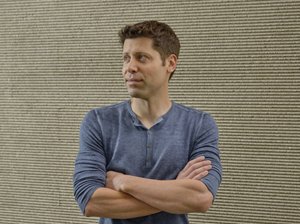
Cyptocurrency has a stigma of being a volatile, risky, uncertain bet. But that's not stopping one area non-profit from launching a new program aimed at high schoolers to demystify the digital-currency market.
The nonprofit Junior Achievement of Northern California along with Circle Internet Financial Ltd, a global digital finance firm, launched what it calls the Digital Financial Literacy Curriculum. The program is geared at teaching students about Bitcoin, Blockchain and NFTs (non-fungible tokens).
It’s a step Andrea Lo, a JA NorCal board member, said is necessary.
"For the topic of crypto, there's a lot of misinformation and fear," said Lo. "And we wanted to put out a very unbiased curriculum that was friendly for all types of students, whether they're technical or not technical."
The program, geared towards high school juniors and seniors, will give students two 45-minute courses focused on cryptocurrency history and how digital currencies work. According to Lo, the program is meant to provide students with a baseline of information that was developed over several months.
Set to launch this fall, the program is expected to take place across 12 schools located throughout the Bay Area. Each participating school was chosen from a list of institutions willing to host the program. JA NorCal, a Walnut Creek-based nonprofit providing lessons in financial literacy, work and career readiness, and entrepreneurship, is expected to spend $1,500 for each class taught — the typical cost of a classroom program at the non-profit.
According to Taran Barca-Hall, a regional director for JA NorCal, the programs will be taught by industry experts who volunteer their time. "There's been a really strong response. We'll learn as we go," he said.
But some, like software engineer and tech critic Molly White, said the idea of presenting crypto to teenagers is "alarming."
“I think that it's quite reasonable to want to offer [teenagers] or really any people, financial education,” she said. “But with crypto being such a risky asset class, one that's much more akin to gambling, I think than it is to traditional finance, it really worries me about what types of education these [teenagers] are getting," she said.
Though JA NorCal says the program provides an unbiased education, White says that's a foolish notion because of the organization working with Junior Achievement, Circle Internet Financial. Boston-based Circle has banked its focus on cryptocurrency, designing and issuing USD Coin (USDC), a so-called stablecoin whose value is pegged on the dollar.
“Circle is massively involved in crypto lobbying, in trying to push the narrative around crypto’s the future, crypto is the next big thing … to the public, to Congress, to whoever will listen," White said.
In a release, Circle Vice President Mercina Tillemann-Perez said the program is meant to give everyone a leg up in understanding the “growing digital economy.” The program is designed to "prepare students with resources to participate in and build the next generation of financial services and create a more inclusive and equitable community surrounding this industry,” Tillemann-Perez said.
It’s not the first time White has heard of similar programs, but she says high schoolers should get a more rounded financial education, one that includes crypto, than just targeted programs. She said teenagers should learn about crypto "in ways where they get bruises and not broken bones."
“Kids, especially at the high school age, are starting to become of the age where they need to make their own decisions, make their own mistakes and hopefully not lose the entire quantity of money that they may have access to,” White said.
Junior Achievement's Lo said crypto has both naysayers and diehard believers, which is why the organization is focusing on talking about the technology. "We're just educating, it's unbiased," she said. "We're not asking anyone to go into that industry, we're asking them to be aware that this exists."








